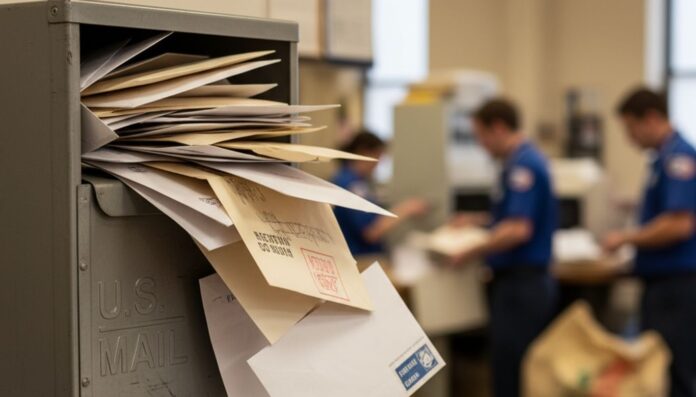In an era dominated by instant digital communication, the humble “lifafa” or envelope remains an essential part of our postal ecosystem. Yet, many of us have never paused to consider what happens when an envelope goes undelivered. This guide delves into the concept of Unclaimed Lifafa, its implications for postal services and businesses, and proven strategies to prevent correspondence from becoming lost in transit.
What Is an Unclaimed Lifafa?
“Lifafa” is the Hindi word for an envelope containing letters, documents, or other mailed items. When postal authorities attempt delivery but the recipient fails to collect the envelope—due to incorrect addressing, relocation, or simple oversight—the item becomes an Unclaimed Lifafa. Despite containing accurate return and destination addresses, these envelopes languish in post office backlogs until they are returned to the sender or otherwise processed.
Common Causes of Unclaimed Lifafa
-
Address Errors: Typographical mistakes in house numbers, street names, or postal codes can make delivery impossible.
-
Recipient Relocation: People moving homes or offices may forget to update their address with postal or commercial entities.
-
Neglected Mailboxes: Busy schedules lead some recipients to overlook checking their mail for days or weeks.
-
Uncollected Registered Mail: Envelopes requiring a signature or payment—such as registered letters—often expire unclaimed if recipients miss the collection notice.
The Impact on Postal Services
When lifafas go unclaimed, postal systems incur significant operational challenges. Returned items must be sorted, stored, and eventually resent or returned to the sender. This process not only creates logistical bottlenecks but also drives up costs for postal agencies:
-
Increased Workload: Sorting unclaimed envelopes demands additional labor and warehouse space.
-
Rising Expenses: Transportation and handling costs mount with each return trip to the sender.
-
Delayed Deliveries: Processing backlogged mail can slow down overall mail flow, affecting timely service.
-
Resource Drain: Customer service inquiries about missing mail further strain postal staff and budgets.
Consequences for Government and Businesses
For government offices, unclaimed lifafas often contain critical documents—tax notices, legal summons, voter cards—where non-receipt can disrupt civic processes. Businesses likewise suffer when invoices, approvals, contracts, or sensitive communications fail to reach their intended recipients:
-
Financial Disruptions: Undelivered invoices can delay payments, impacting cash flow and vendor relationships.
-
Compliance Risks: Missing legal or regulatory notices may lead to penalties or missed deadlines.
-
Operational Delays: Project approvals or procurement documents held up in transit stall internal workflows.
-
Reputation Damage: Clients and partners perceiving unreliable communication may lose trust in an organization’s professionalism.
Preventing Unclaimed Lifafa: Proactive Measures
Safeguarding against unclaimed envelopes requires a combination of meticulous address management, user diligence, and leveraging postal services’ specialized offerings.
1. Keep Addresses Current
Regularly updating your address with postal authorities and organizations minimizes misdirected mail. Whenever you move—permanently or even temporarily—notify:
-
Your local post office
-
Financial institutions (banks, insurance companies)
-
Utility providers (gas, electricity, telecom)
-
Subscription services and memberships
Timely address updates ensure your lifafa arrives at the right location without detours or returns.
2. Monitor Your Mailbox
Simple, disciplined habits can dramatically reduce unclaimed envelopes:
-
Daily Checks: Dedicate a fixed time each day to inspect your physical mailbox.
-
Weekend Catch-Ups: If weekday visits are impractical, plan weekend catch-ups to clear accumulated mail.
-
Mail Alerts: Some postal services offer SMS or email notifications for incoming registered mail.
By staying vigilant, you’ll spot any collection notices or undelivered items promptly.
3. Utilize Mail Collection Services
Postal departments in many regions provide mail collection or forwarding options for travelers and absentee residents. These services:
-
Collect and Hold: Securely store envelopes at a designated post office location until you return.
-
Forward Mail: Reroute your correspondence to a temporary address or forwarding service.
-
Organize Mail: Sort and package mail for easier retrieval.
Businesses with dispersed employees or frequent travelers benefit greatly from these paid or complimentary services.
4. Implement Return-Receipt and Tracking
For critical communications, use services that provide:
-
Tracking Numbers: Real-time updates on your lifafa’s transit status.
-
Return Receipts: Confirmation when the recipient signs or collects the envelope.
-
Insurance Options: Financial protection against lost or damaged mail.
These features not only alert senders to delivery issues but also reduce the risk of complete non-delivery.
5. Opt for Digital Notifications
Many postal services now integrate digital platforms—web portals or mobile apps—that allow:
-
E-Notices: Receive alerts when mail arrives at your post office.
-
Redelivery Requests: Schedule a new delivery date online.
-
Hold Mail Options: Temporarily pause or hold delivery during holidays or business trips.
Digital tools empower recipients to manage their mail proactively from anywhere.
Best Practices for Organizations
Businesses and government agencies can further curtail unclaimed lifafas with process improvements:
-
Pre-Delivery Verification: Use address validation software to catch errors before mailing.
-
Multi-Channel Communication: Send both physical mail and email reminders for important documents.
-
Staggered Follow-Ups: After an initial non-delivery, promptly re-send critical letters with clear urgency markers.
-
Client Education: Inform customers about the importance of updating addresses and checking mail regularly.
By combining technology, communications, and customer outreach, organizations protect themselves and their recipients from missed correspondence.
Final Thoughts
Although the age of instant messaging may overshadow the envelope, lifafas remain vital for legal communications, formal notifications, and sensitive documents. An Unclaimed Lifafa is more than just an undelivered letter—it’s a potential breakdown in the information chain that can carry costly repercussions for individuals, businesses, and governments alike.
Preventing unclaimed envelopes hinges on consistent address management, disciplined mailbox checks, and leveraging postal services’ advanced options such as tracking, forwarding, and mail collection services. Organizations can play a proactive role through address validation, digital notifications, and multi-channel reminders.
By understanding the lifecycle of your lifafa and adopting these best practices, you ensure that every envelope reaches its destination—keeping your communications timely, your operations smooth, and your stakeholders informed.

